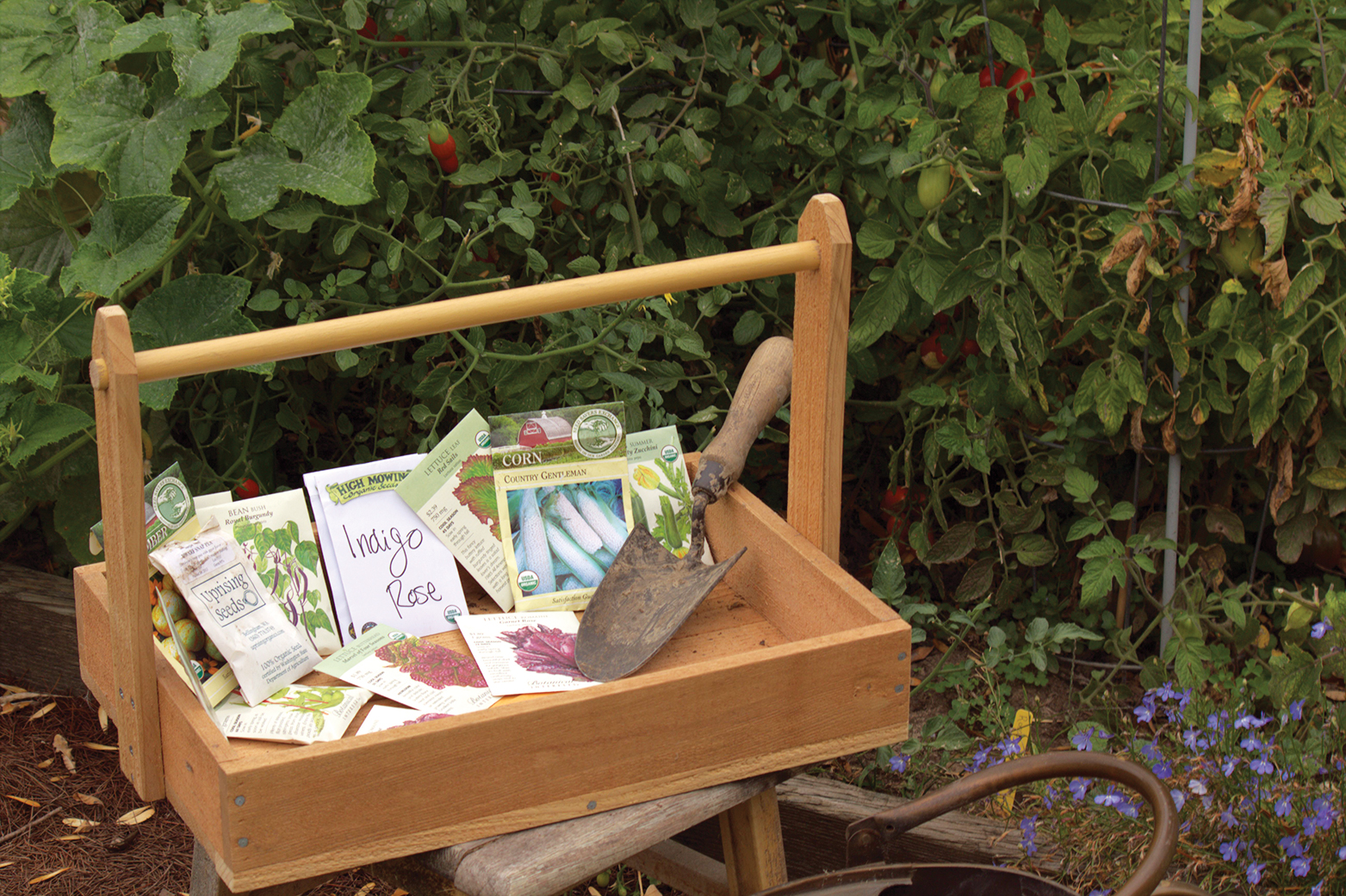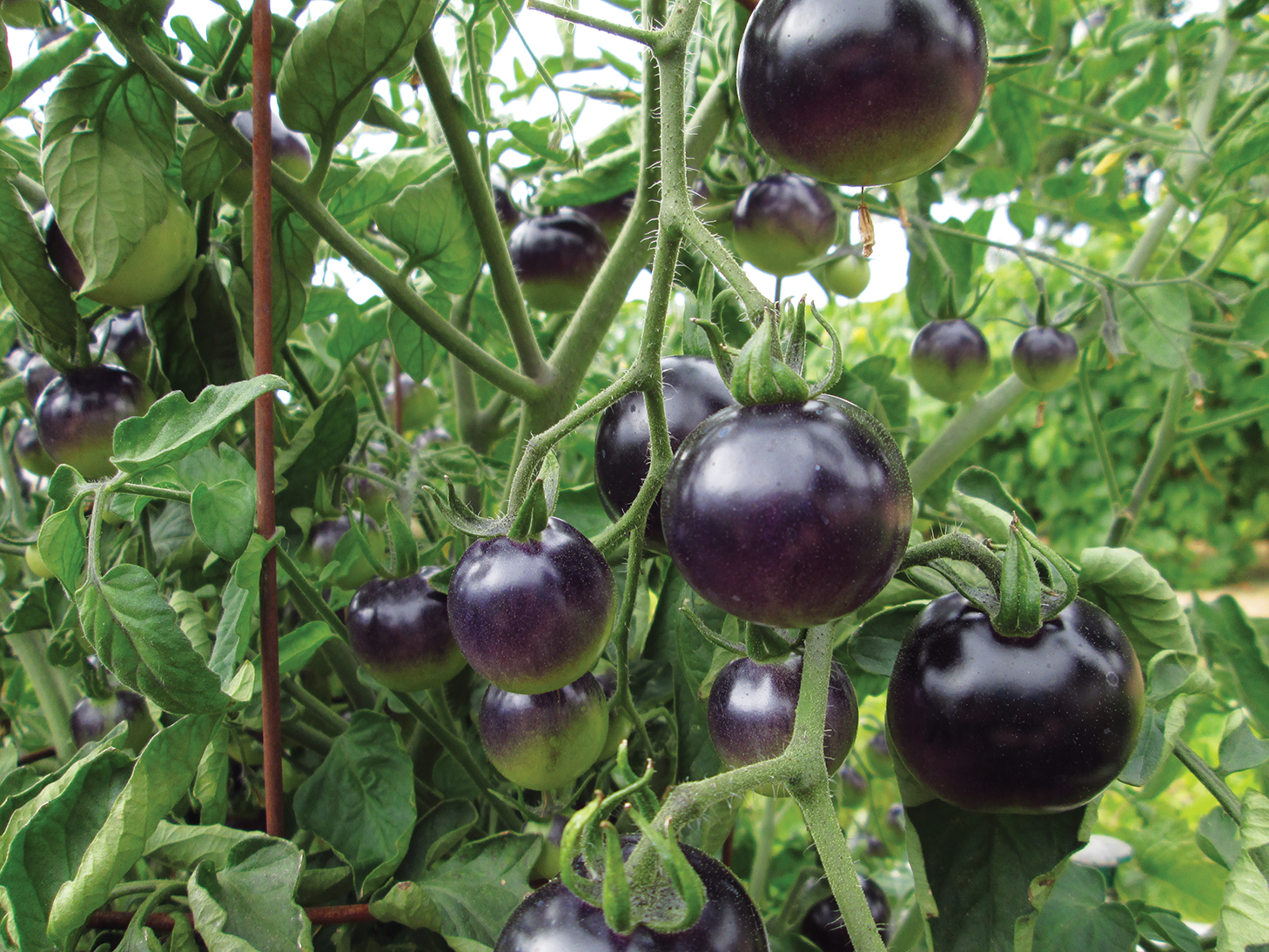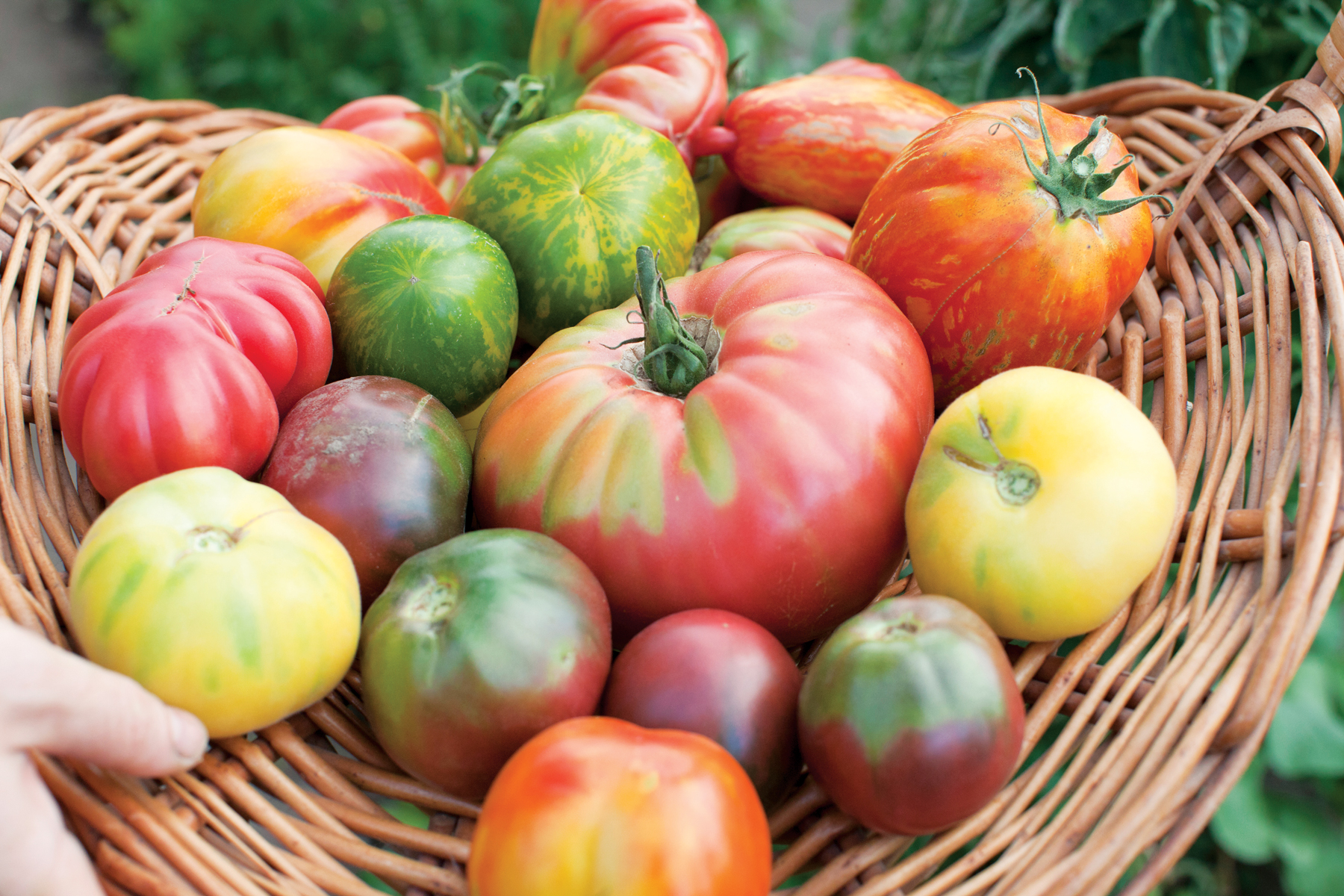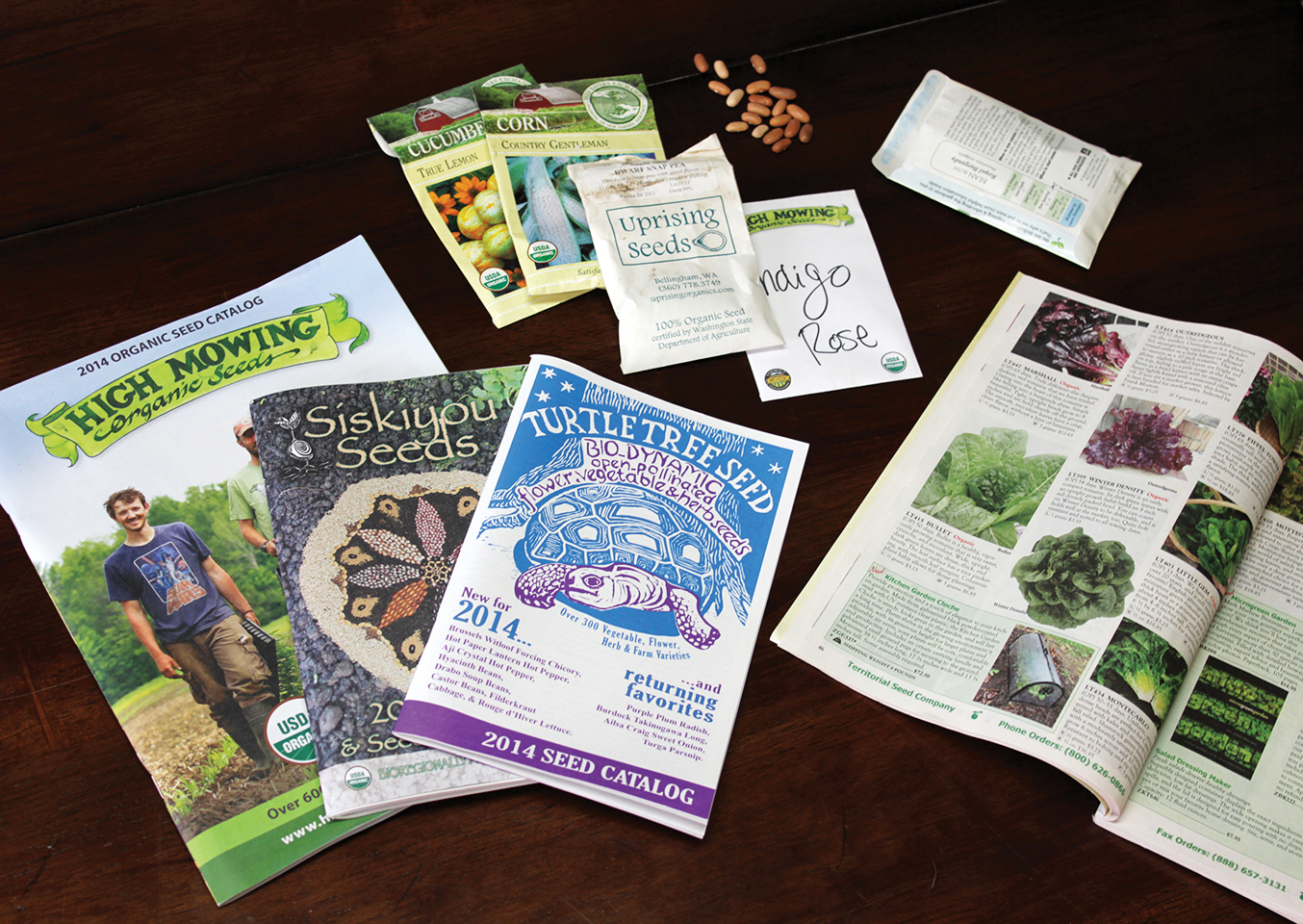Wondering about the best place to buy vegetable seeds? Learn everything you need to know about sourcing open pollinated vs heirloom seeds here to grow yourself a successful, resilient garden.
After growing my own vegetables organically for 25 years, I recently hit a run of more than my usual share of garden flops. Were the crop failures my fault, or could I blame the weather? Had I been choosing the wrong seeds? I decided to investigate by interviewing multiple seed experts for my website, A Way to Garden, which led me down a path full of surprising discoveries. I’ve come to see, in a new light, that every successful and resilient garden starts with high-quality seeds that are matched to the garden’s growing conditions.
Seeds Are Alive
Think about it: How many other consumer sectors deliver living embryos by mail, or set them out on an in-store rack? Seeds are alive and they adapt, meaning they’re greatly influenced by the environment in which they were originally bred and the way each generation of seeds was produced. They evolve in response to their surroundings more than we realize. These adaptations are based on obvious factors, such as climate, but also on cultural factors, such as whether the seeds were given a diet of chemical fertilizers. As a result, packets from 10 different seed companies may list the same variety name on their covers, but what’s inside wasn’t necessarily created equal. A ‘Brandywine’ tomato isn’t a ‘Brandywine’ isn’t a ‘Brandywine.’
When seed shopping, therefore, your most important question should be, “Will this living thing feel at home in my garden?” Meaning: “What’s this particular seed adapted to?” But you can’t know that unless you know the original source of the seed, which, surprisingly, is often not its seller. Many companies are actually re-sellers and not plant breeders or even seed farmers. You need to know who bred the seed, as well as where and how.
Open-Pollinated Seed

With open-pollinated (OP) varieties, including heirlooms, careful seed sourcing is especially critical. Many gardeners like to save seed year to year, so they choose open-pollinated varieties that allow for that. An OP is “a living, breathing organism that, unlike a hybrid, is meant to evolve over time,” says Micaela Colley, executive director of Organic Seed Alliance (OSA), which fosters ethical seed stewardship and the revival of regional breeding. As long as pollen isn’t shared between different varieties within the same species, the resulting open-pollinated seed will remain true to type and will produce a next generation that looks mostly like its parent plant.
That’s not the case with hybrid varieties, which are created through deliberate crosses between two genetically distinct, homozygous (highly inbred) parents. This hybridization results in uniform plants with sought-after traits — disease resistance, for example. A hybrid plant’s seeds will not grow true to type, but will instead produce a next generation that expresses an unpredictable range of traits. That means, with hybrids, customers must purchase new seeds annually (again, because the plants’ offspring won’t resemble its parents). In about 1950, hybrids became popular with farmers, in part because of their uniformity. Imagine discovering, for the first time, commercially convenient, cost-saving traits, such as a field of onions or broccoli all ready for harvest at once. These desirable traits were quickly adopted, allowing for ever-bigger monocultures.
Open-pollinated seeds, by comparison, are loaded with potential variability and diversity, because their seed is produced by pollen flowing freely between all the genetically similar parents (as opposed to deliberate crosses, as in the production of hybrids). Thus, producing quality OP seed requires diligent management of each year’s seed crop: roguing out weaklings and individuals that veer off course, while also selecting for plants that show improved vigor or disease resistance. According to expert breeder and OSA co-founder John Navazio, who recently became manager of plant breeding at Johnny’s Selected Seeds in Maine, if you don’t maintain OPs year in and year out, and re-select for the type you like and get rid of the plants that are obviously not adapted to your growing system, the varieties will slowly peter out through genetic drift.
That petering out is just what has happened to OPs in general, because the seed industry followed the hybrid money instead. It’s also likely why, at harvest time, some of my recent garden failures (and perhaps yours) bore no resemblance to their catalog photos or descriptions.
Heirloom Seed Misconceptions
The word “heirloom” doesn’t tell you much, nor does it guarantee quality or success. An heirloom is a type of open-pollinated variety that, by various definitions, is either at least 50 years old, or 100, or has survived outside the commercial seed market for more than 50 years by being passed down within one family or community. Despite heirlooms’ appeal and popularity, the term’s meaning is fuzzy.
Heirlooms, however, are critical to our cultural, agricultural and botanical heritage, and are loaded with precious genetic diversity. Seed Savers Exchange, which has committed 40 years to preserving and reviving heirloom varieties, confirms that a strain of an heirloom (or any OP) that hasn’t been cared for becomes a glimmer of its genetic origins.
“Heirloom” seems to strike a chord with farmers-market shoppers and seed buyers, so, like “natural” in the food world, the term is at risk of being used as greenwashing if what’s inside the packet is seed that hasn’t been rigorously maintained. I’m suspicious if a catalog offers me no insight on its seeds beyond labeling them “heirloom,” which, on its own, isn’t enough information to know whether I’m getting high-quality seeds adapted to my garden.
Heirlooms aren’t the only OP seeds (or even necessarily the most exciting ones). All heirlooms are open-pollinated, but not all open-pollinated varieties are heirlooms. Many experts tell me that some of the most dynamic OPs of all are modern ones, or “heirlooms of tomorrow,” as Ken Greene, co-founder of Hudson Valley Seed Library in New York, calls them, referring to treasures such as the Library’s whopping-big, regionally adapted ‘Upstate Oxheart’ tomato, which was grown and selected in Dutchess County, N.Y.

I marvel at modern OPs from the ongoing 40-year legacy of breeder Alan Kapuler of Oregon, which are available in the Peace Seedlings catalog and elsewhere, such as his dramatic, purple-podded ‘Sugar Magnolia’ snap pea. Same goes for vivid ‘Merlot’ lettuce, developed by Frank Morton of Oregon-based Wild Garden Seed, who, like Navazio and Kapuler, provides inspiration and mentoring to upcoming seed farmers. These varieties, along with Morton’s red-splashed ‘Flashy Butter Oak’ lettuce and ‘Flashback’ calendulas, are the stunning heirlooms of tomorrow, which is exciting for future gardeners. Morton grows every seed he sells, both retail and wholesale (most of his business is with other catalogs and farmers).
I’m not surprised, then, that when I grow modern OP gems from the top organic breeders, I often have my best results. The farmer-breeders behind them are actively and intimately engaged with the seeds’ genetics, evolving with the varieties in real time. Today, this is the exception in the seed world — not the rule.
The Craze Over Hybrid Varieties
Some regard “hybrid” as a bad word; others say this type of seed is a magic wand. But maybe it’s neither. I grow some hybrids among the OPs in my garden. Some growers eschew them because the erosion of biodiversity in agriculture can be traced to hybrids’ industry dominance — and because they want to be seed-independent (meaning they don’t want to buy seed each year). For some attributes, such as disease resistance in tomatoes, I have come to count on certain hybrids. Experts such as Colley and Navazio say OPs can offer many such traits, too, if breeders invest time and expertise in the plants’ development. But, for many vegetables, we just aren’t there yet. The industry has been so hybrid-centric, Navazio says, that some entire crops even suffer from “hybriditis,” meaning more than 90 percent of the available varieties are hybrids. This is the case with broccoli, cabbage and carrots.
“Practically nobody’s been taking care of the OPs’ genetics since the seed companies invested in hybrids about 40 years ago,” Navazio says. “The hybrids have had a half-century of the best and brightest breeders working on them.” Frankly, that’s where the money was. As more gardeners and farmers understand the hybrid vs. OP trade-offs and switch to open-pollinated seeds, companies will invest more in such varieties, offering growers the power to save their own seeds of first-rate, organically bred varieties.

What About Genetically Modified Organisms?
Despite much recent confusion, “hybrid” is not a synonym for “transgenic hybrid” (also called a “genetically modified organism,” or GMO). Transgenic seed is produced in a biotech lab by a process that, unlike with OPs and hybrids, does not involve sexual reproduction. To create a GM variety, scientists transfer genes between organisms not closely enough related to otherwise reproduce.
Though many gardeners urgently ask me to help them identify catalogs that don’t sell genetically modified seed, I don’t worry about that the way I worry when food shopping, where GMOs are front-of-mind. That’s because no home-garden seed catalog knowingly sells GM seed at this time. So far, it’s only available in the commodity-crop realm, and to grow that agricultural seed (for crops such as alfalfa, canola, corn, cotton, soybeans, squash and sugar beets), a farmer must enter into a lease-like legal agreement — not unlike when you license a copy of computer software. Catalogs selling gardeners small packets are not in the licensing business. Yes, unwitting instances of genetic contamination may be in the garden-seed supply, though smart companies now test vulnerable crops, such as sweet corn, and proudly tell customers so. Many catalogs make “non-GMO” claims loudly, specifically to address this rise in customer concern. That’s fine, as long as it’s not the only variable the catalog tells me. Similarly to when I see only an “heirloom” claim, I’m suspicious if “non-GMO” is all I’m offered. Look for catalogs that give you more details.
Regional Seed Breeding
The more I learn, the more I’m inclined to take my locavorism to the seed level. It’s not an original idea. “In the 12,000 or so years of agricultural history, farmers have always had, until very recently, an intimate relationship with the seeds they grow,” Navazio says. “They have been stewards of the seed and, in fact, shaped the seed — and farming practices and communities have co-evolved with the seed-crop varieties they grew.”
Even if you don’t choose to save your own seed, tracking down seed bred for your region will provide enhanced performance against local climate, pest and disease challenges. Doing so can even affect flavor, such as with tomatoes, says Tom Stearns, founder of Vermont-based High Mowing Organic Seeds, which sells a mix of hybrids, heirlooms and modern OPs. “A tomato’s final flavor is 60 percent genetics, 40 percent environment,” Stearns says. “If it was bred and selected for the environment you’re growing it in, then you can get to the pinnacle of that variety’s taste. But if it’s a Florida-produced variety, for instance, and you grow it in the Northeast, the marriage of that seed’s genetics and your environment won’t result in the realization of that crop’s ultimate potential.”
While choosing local makes sense, note that just because a company may be based in your region doesn’t mean all of its seed offerings are bred and grown in local soils. Perhaps the company contracts with large seed wholesalers elsewhere. Another good reason to ask companies, “Where does your seed really come from?”

Organic Seeds
Seed farming can be a dirty business. Raising a plant through its entire life cycle to its reproductive stage means it’s in the ground longer — subject to more months of pest and disease pressures — than the same crop raised for food. Plus, regulations for the application of agricultural chemicals may be less strict for seed farming than for market growing of the same crop. Unless you buy only organic seed, you may be unknowingly contributing to chemical pollution on the seed farm. Organic seed is the best match you can make for your chemical-free backyard. Using conventionally grown seed is what Stearns calls a “dull tool” for home gardeners who don’t use chemicals, because this seed was bred and raised on pesticides and chemical fertilizers — adapted to a diet of them.
“The crop varieties that humans grow are influenced greatly by the environment,” Navazio says. “If we grow our crops under high-input, synthetic systems, they’ll adapt to that. In organics, you must reintroduce nature, and to do that in an agricultural system, you have to adapt the crops to perform under this whole new paradigm of not getting more than enough fertilizer, and not receiving protection from every single pathogen, disease agent or insect.” We need to start holding seed sellers accountable, and asking them to specify whether chemicals were used in the breeding and growing of each variety they offer. This would require extra work for sellers, so, aside from labeling certified organic seed, most companies don’t do it. Your questions may prompt change.
A Snapshot of the Seed Industry
So where did your seed come from, and is it a good match for your garden? First, remember that many home-garden seed companies don’t breed or even produce what they sell. Gardeners’ needs are very different from those of industrial farmers, but because garden seed is only a tiny share of the world seed market, research and breeding have focused on the more lucrative segment for decades. A brief look at the seed industry is troubling.
Fewer than 10 transnational corporations — giant companies that also produce pharmaceuticals and chemicals — currently own about 80 percent of the world’s commercial seed. Much of this seed is for field crops, such as corn and soy, though these companies are increasingly investing in fruit and vegetable seeds. The next tier of the seed industry includes giant distributors that grow no seed but sell the big guys’ wares (sometimes to home-garden catalogs). Then come brokers who specialize in cheap OP seed sold in some garden catalogs — non-organic seed that may be short on good, selective maintenance. These mostly cost-focused companies contract to have OPs grown, but they may lack commitment and the pride of ownership.
Here’s the bright light in this dim picture: Nurtured in part by the Organic Seed Alliance, more small-scale breeders are developing and stewarding regionally suited crop varieties. This movement began about 40 years ago, when seedsmen such as Alan Kapuler began his open-source breeding in the early 1970s. About that same time, Rob Johnston of Johnny’s Selected Seeds in Maine — now a large, employee-owned operation that sells conventional and organic seed — shaped his company to identify the best-tasting and easiest-to-grow varieties for regional gardeners. Frank Morton at Wild Garden Seed (who sells seed to Johnny’s and others) has been at it for more than 20 years, and Tom Stearns at High Mowing for 18 — both of them with an organic-only mission.
On their heels comes today’s generation of seed stewards, some at companies with appropriately spirited names, such as Uprising Seeds and Adaptive Seeds in the Pacific Northwest. Other organizations have a business model quite divergent from the transnationals, including two in New York’s Hudson Valley: Turtle Tree Seed is a nonprofit that staffs adults with disabilities. At Hudson Valley Seed Library, some customers choose to become members, and then return their own saved seed that will, in turn, be donated to worthy causes. The companies I’ve named here (and in “Picking Your Packets,”) maintain solid genetic stock and either produce their seed or have close relationships with the farmers who do — people they’re proud to name. Some even develop new varieties intended for organic farms and gardens right on the land they work, with no secrets about how. The result is exceptional seed that promises to be a better match for regional gardeners.

Picking Your Packets: 6 Seed-Shopping Rules
- Take your time. Ask questions to make a good match geographically, culturally and practically. You want regionally suitable seed that will like your conditions and methods and return your desired result.
- Know your breeder. Research your seed companies, shopping as carefully for seed as you do for food. Are they seed farmers, at least in part, or simply sellers of seed bred elsewhere? Either can be fine — depending where “elsewhere” is. Read catalogs’ fine print, such as that provided by Bountiful Gardens in Northern California and Fedco Seeds in Maine.What? A catalog doesn’t say? Sellers of a live, adaptive product — whose genetics are the product — should want to tell you how much care was taken to deliver it true to type, fresh and vigorous, and want to assure you that it was produced without chemicals the way you’ll grow it at home. Insist, or shop elsewhere.
- Focus on your region. If you find a strong, regionally bred choice, go with it — especially with long-season crops, such as tomatoes, peppers and squash. I’m blessed to have multiple organic seed farmers near me, including Turtle Tree Seed (a biodynamic company) and Hudson Valley Seed Library, both in New York, and High Mowing Organic Seeds in Vermont.Organic growers in the Pacific Northwest reside in the seed-supply mecca, with Frank Morton at Wild Garden Seed and Alan Kapuler at Peace Seedlings, both in Oregon. A few young companies, such as Adaptive Seeds (with a trove of kale and winter squash genetics) and Siskiyou Seeds in Oregon, and Uprising Seeds in Washington (better beets and Northern-bred tomatoes), enrich the regional palette.
If you face arid conditions, see what genetics Native Seeds/SEARCH in Tucson has in its vault. In the foothills of Northern California, Sierra Seeds offers organic, regionally adapted varieties.
Southern Exposure Seed Exchange in Virginia has been focused for 30-plus years on the Mid-Atlantic region. Sow True Seed in Asheville, N.C., is a newer Southeast-centric catalog that likewise emphasizes regional seed selections.
In the Midwest, check in first with Seed Savers Exchange or Sand Hill Preservation Center, both in Iowa. Glenn and Linda Drowns of Sand Hill have been preservationists for decades, and Glenn’s collections of squash and corn are unrivaled.
- Consider specialty sources. If you can’t find a regionally bred source, seek out a specialist — the breeder obsessed with lettuce genetics or disease-resistant tomatoes, for example. I’d also go to a specialist for a signature crop of an area I don’t reside in, such as asking Southern Exposure to recommend an okra or a crowder pea. I wouldn’t count on it as my main crop, but if it does well and is open-pollinated, I’d save that seed and begin adapting it to my garden for more successful future plantings and harvests.
- Eschew harmful chemicals. This one’s simple. Where organic or chemical-free is offered, buy it. In most cases, you’ll get what you pay for. Vote with your dollars for a better seed supply that’s well-adapted to organic growing methods. Create supply with demand.
- Be forgiving. What if a packet is a flop? “Don’t base your impression of a seed supplier on one year,” says Micaela Colley of Organic Seed Alliance. “Seed is not an easy product to maintain quality-wise; it’s a moving target.” Forgive a one-time glitch, and always remember that seeds aren’t widgets — they’re alive.

Whether it’s on her info-packed website, A Way to Garden, or her public radio show, Margaret Roach’s brand of “horticultural how-to and woo-woo” fuses practical information and philosophical inspiration for organic gardeners and those curious about the natural world. She’s been growing and writing about plants for 25-plus years.




